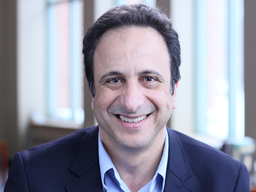The Post-Andalusian Condition
Islam and the Rise of the West
Location
Library and Gallery, Albin O. Kuhn
Date & Time
March 15, 2017, 4:00 pm – 5:30 pm
Description
Anouar Majid,
Director of the Center for Global Humanities, Vice President for Global
Affairs and Communications, and Professor of English at the University
of New England
In
this lecture, Anouar Majid expands Edward Said’s notion of Orientalism
and extends it back to Late Middle Ages, when the Andalusian order,
characterized by a fragile coexistence among members of different
religions, was upended by a crusading Christian spirit and the rise of a
Western hegemonic worldview that allowed no room for alternatives. Such
a world system forced Muslims and other non-Western traditions into a
defensive mode, fighting back by deploying indigenous traditions. Even
as European powers pursued their expansionist agenda in the name of
freedom, Muslims fought for their independence by rallying their people
against Western imperialism. As a result of this uneven struggle,
Muslims found strength in orthodoxies that have only made their
condition worse and continue to bedevil the world order today.
Bio:
Anouar Majid
is the Director of the Center for Global Humanities, Vice President for
Global Affairs and Communications, and Professor of English at the
University of New England, and the Founding Director of the Tangier
Global Forum in Morocco. He is the author of five critically acclaimed
books on Islam and the West, including Unveiling Traditions (Duke University Press, 2000), Freedom and Orthodoxy (Stanford University Press, 2004), A Call for Heresy (University of Minnesota Press, 2007), We Are All Moors (University of Minnesota Press, 2009), and Islam and America
(Rowman & Littlefield, 2012; 2015). Majid has given lectures in
many countries and has appeared on American, Moroccan, French, and Dutch
television programs. He is a novelist, the author of Si Yussef, and is the editor of Tingis, a free online magazine dedicated to a new study of Islam and its history.
Sponsored
by the Dresher Center for the Humanities; the Global Studies Program;
and the Modern Languages, Linguistics and Intercultural Communication
Department
